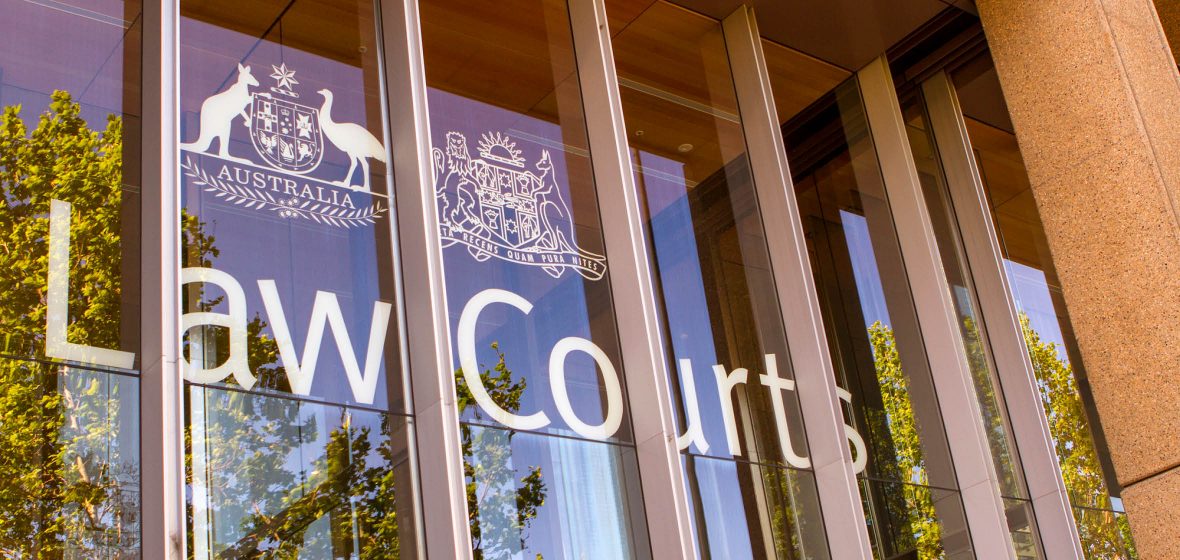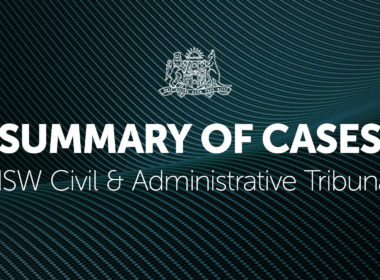This case was an appeal lodged in the Supreme Court of NSW by Mr Chunfeng Wang pursuant to s.247 Legal Profession Uniform Law (NSW) (LPUL) against a decision by the Fidelity Fund Management Committee (the Committee) to disallow his fidelity fund claim.
Mr Wang had lodged a fidelity fund claim alleging that the former law practice SHS Law Pty Ltd (SHS Law) failed to account to him for $58,000. The claim was disallowed by the Committee on several grounds, including that the $58,000 was not “trust money” as defined in s.129(1) LPUL and that the claimant had failed to mitigate his loss pursuant to s.240(5)(b) LPUL.
Basten AJ held at [5] that the function of the Supreme Court when hearing an appeal pursuant to s.247 LPUL was not to review the decision of the Committee for errors, but rather, to make a fresh assessment of the merits of the claim.
Mr Wang is a citizen of the Peoples Republic of China who decided to migrate to Australia. Mr Wang sought assistance from a company located in China, named Pantheon Shanghai Investment Management Co Limited (Pantheon) which specialised in assisting Chinese citizens to find professional roles overseas and to migrate overseas. In support of his case, Mr Wang produced receipts from Pantheon for CNY 25,000 paid to it on 17 October 2016 and for CNY 763,716 paid to it on 4 February 2017. It was agreed by the parties that the total Australian dollar amount recorded by the two receipts was at least $153,000. The two receipts included a statement to the effect that the money was only to be used for the purpose of an “Australian 186 visa” and that the money was to be refunded if there was “no substantial progress on this matter”.
Mr Wang also produced two receipts purportedly issued by SHS Law dated 8 February 2017, totalling $80,000. The $80,000 had apparently been divided by SHS Law into $21,000 for a “visa 186” matter and $59,000 for a “retainer agreement” matter. Mr Wang alleged that he had entered into a Cost and Services Agreement with SHS Law for the 186 visa matter and had entered into a Retainer Agreement with SHS Law for the retainer agreement matter. Mr Wang provided unsigned copies of those documents.
The Law Society produced (inter alia) a Cooperation Agreement between Xi Feng Investment Management Co Limited, Pantheon SH Pty Ltd and SHS Law. Pursuant to that Cooperation Agreement, Pantheon appointed SHS Law as its agent to obtain “Australian permanent resident 186/187 visa where applicants are exempt from English level test and career assessment” for Pantheon’s clients. The Cooperation Agreement provided for instalment payments totalling $170,000 to be made by Pantheon for each 186 visa. Basten AJ held at [35] that the payment of $80,000 to SHS Law on 8 February 2017 in a single payment, had been made for that purpose, not for the purposes set out in the alleged SHS receipts. Basten AJ also held that an internal trust ledger that purported to state that the $59,000 was received pursuant to the Retainer Agreement “did not relate to any contractual obligation as between SHS Law and Mr Wang”.
When considering the merits of the claim, Basten AJ noted at [9] that the fidelity fund provisions only apply to money or property that is received by a law practice, “in the course of legal practice”. Basten AJ also noted the stipulation in s.221(1) LPUL, that the fidelity fund provisions apply to the default of a law practice “only to the extent that it occurs in connection with the provision of legal services by that law practice”. Basten AJ held at [39] that Pantheon was acting as Mr Wang’s agent for the transaction and that Pantheon had a business arrangement with SHS Law pursuant to the Cooperation Agreement that “did not reflect an undertaking in the ordinary course of legal practice”.
Basten AJ also held at [43] that the services to be provided under the Cost and Services Agreement, amounted to “immigration assistance” and, at the relevant time, could only be provided by a solicitor who was also a registered migration agent. Basten AJ further held that those services would not have been provided in the course of practice as a solicitor, but rather, would have been provided in the course of practice as an immigration agent. Therefore, Basten AJ held that any money paid in relation to those services did not qualify as “trust money” for the purpose of s.129(1) LPUL.
In deciding that the money received by SHS Law was not “trust money” Basten AJ overruled the decision of Schmidt J in Quixue Wang v Council of the Law Society of New South Wales [2009] NSWSC 67. In that case, Schmidt J held that a solicitor who had knowingly received money to hold for a Chinese resident and a migration agent unrelated to his law practice in connection with a fraudulent visa scheme that was being conducted by the migration agent, had received that money as a “stakeholder”. Schmidt J therefore held that the money was “trust money” on the basis that solicitors sometimes acted as stakeholders in the course of legal practice. However, Basten AJ held at [45]:
While the judge described Mr Lui’s role as that of ‘stakeholder’, in fact his role was to give a veneer of credibility to the proposed scheme to obtain a visa … The money was self-evidently not entrusted to Mr Lui in the course of or in connection with the provision of legal services by his law practice.
In relation to the Committee’s decision to disallow the claim because of Mr Wang’s unreasonable failure to mitigate loss, Basten AJ held that the burden of proof lay with the Law Society and that it had failed to discharge that burden. However, Basten AJ held that Mr Wang was required by s. 247(3)(a) LPUL to prove that the $58,000 was not reasonably available from any other source (such as Pantheon) and that he had failed to discharge that burden of proof. Basten AJ therefore held at [53] that the appeal must fail on that additional ground.




